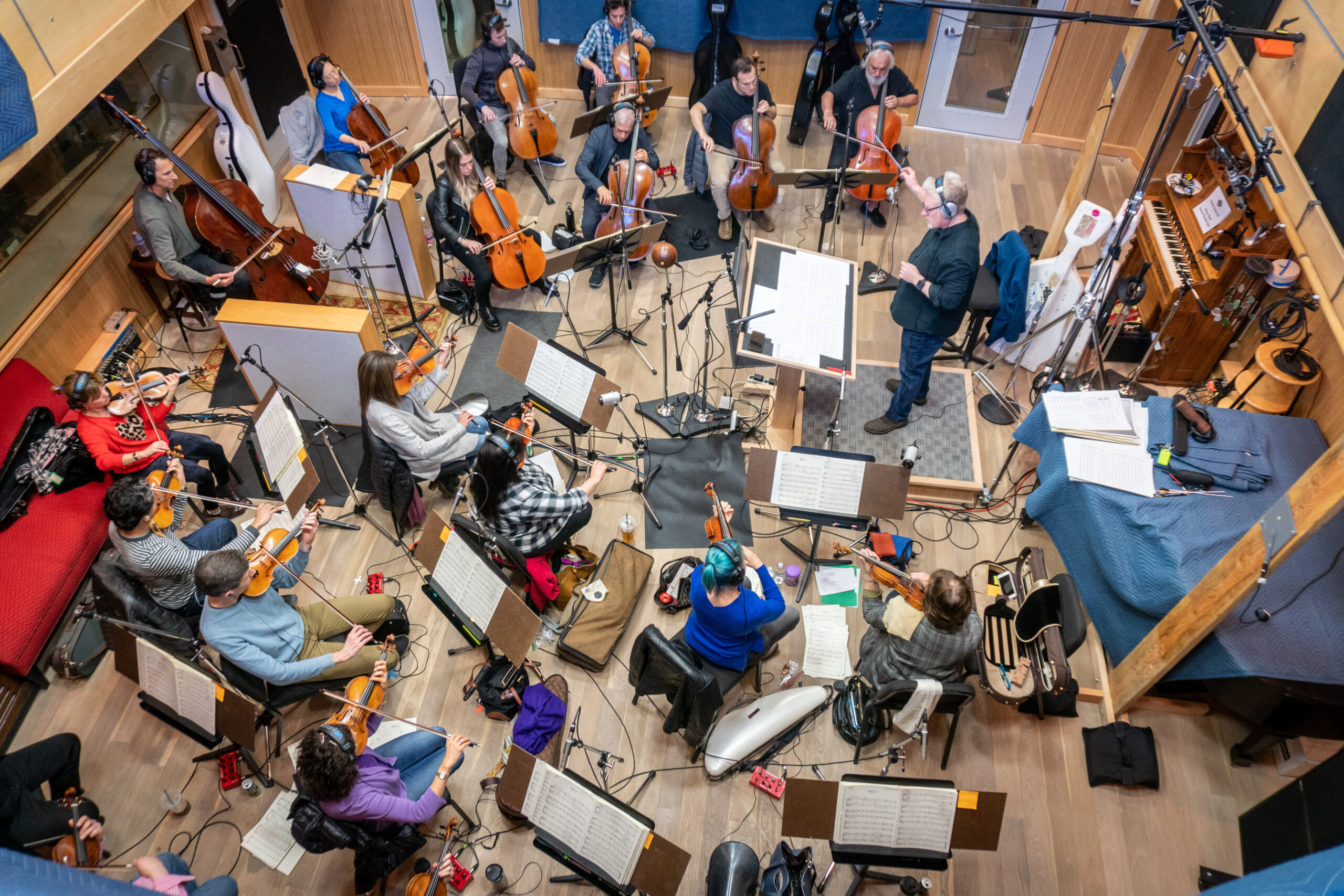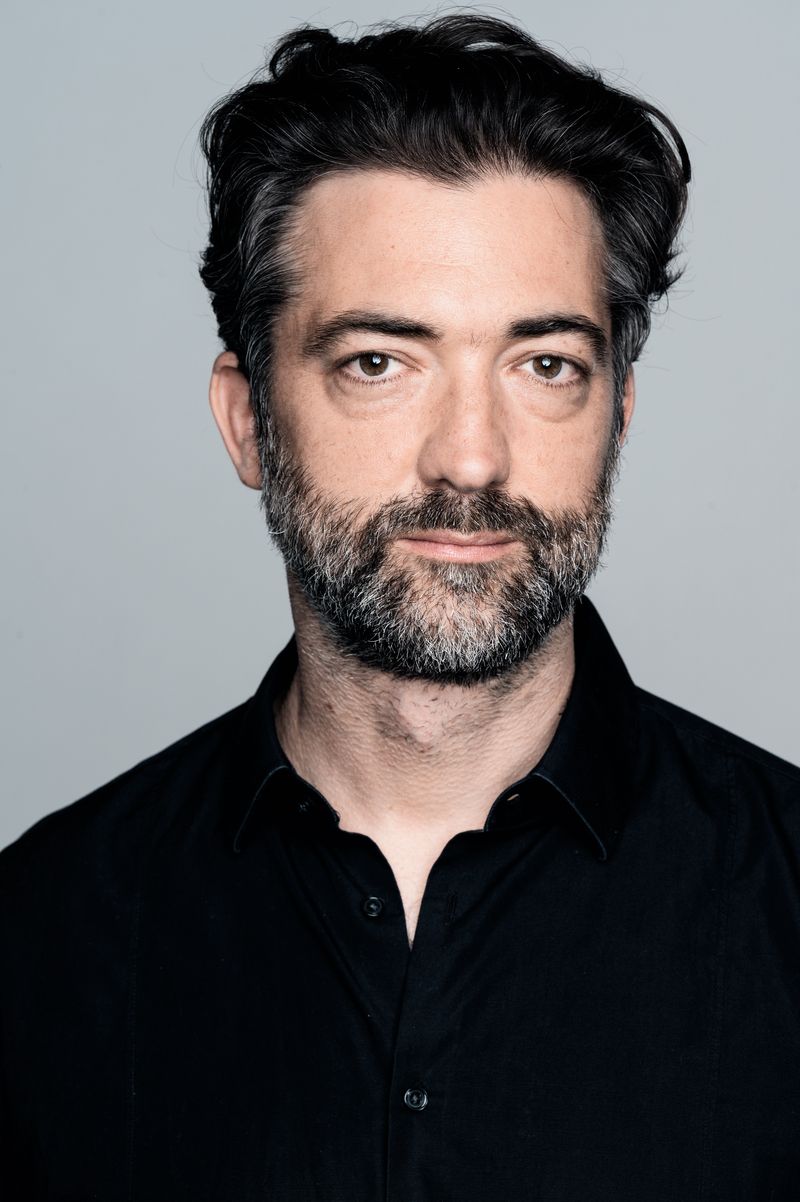Few audiences of a certain generation eager to tune into the glory and human spirit of Munich’s Olympic Games won’t soon forget having their feel-good viewing interrupted by real world evil as media-savvy Palestinian terrorists lethally took an Israeli weightlifting team hostage. Where these tragic events have been covered by Hollywood before as both re-enactments and documentaries, “September 5” is the first to take the viewpoint of a news control room as a story that American newspeople would kill for becomes a whole new opportunity for ABC’s sports team and their German compatriots to run with.

Tackling a far more real-world subject with filmmaker Tim Felbaum after their sci-fi eco thrillers “Hell” and “The Colony,” composer Lorenz Dangel’s biggest international picture yet is all about close quarter intensity. Eschewing the kind of percolating synth scores that usually mark the sound of political terror and the valiant heroes fighting it, Dangel’s score uses rhythm and gritty sampling in a far more real way, whether conveying subterfuge to get the shot or the tick-tock adrenalin of a director with multiple cameras and the world’s feelings at his command. It’s suspense that communicates the way bigger world outside and the news’ responsibility, or lack of it – as heard the low strings, guitar and mutedly sorrowful piano. Dangel’s “September 5” is a particularly striking example in how to score docudrama with explosively intense and involving subtlety, impressing with an effective scoring voice for a film that couldn’t come at a more relevant time.

Tell us about your path to composing.
I come from a classical music family, and I started to learn the piano at a young age. However, in the beginning I refused to learn how to read scores and tried to hide it by listening to my teachers playing and repeating the music which very soon led me to improvise a lot on the piano. Maybe that was an early sign… Then, much later, after studying double bass and conducting at the university, I finally decided I was interested in studying composition.

You’re previous two films with “September 5” director Tim Fehlbaum were the intense, eco-apocalyptic sci-fi pictures “Hell” and “The Colony.” What was it like for you both to take on a very real subject like this?
To be honest, I was relieved when Tim told me about his ideas for “September 5.” Not because I didn’t enjoy the previous films but because my impression was that Tim had so much more to show as a director, and also for me, this project was just so inspiring and different.
What’s the challenge of adding score to film that tries to be as realistic as possible, especially when film music itself is movie artifice – i.e. something you’d never hear in “real life.” In that respect, was it important to keep the music subtle?
The concept of a documentary-style aesthetic definitely influenced my music approach. The film shouldn’t try to make things “bigger than life” since life was in this case intense and frightening already, so the music shouldn’t exaggerate moments or emotions but rather build an acoustic room that used to tell the story. For instance, a slight feeling of uncertainty or time pressure. Any music you put on a moving image influences the image, but for me, there is a difference between using the music to tell the audience what to feel or the use of music that doesn’t know more than the characters do in the film and must find the way through the events.

What did you and Tim want this score to achieve, and what were your discussions like about the sound it would have? Was your collaboration different here at all?
I sometimes had this imagination that the music – and the sound! – was a seismographic fader of the inner life of the characters. Since they didn’t have the time to express or even register their own feelings, sometimes the music did that for them. Tim and I often had discussions about whether the music should rather support the uncertain situation of a scene or push forward so the time pressure can be experienced. This was a very detailed process, and I also worked closely to the editing in this case, more than in the previous films.
Tell us about your main themes and the score’s motifs.
The score to “September 5” doesn’t really have classical themes. Rather different moods I used for certain purposes. Overall, there are four different moods. The most subtle one is mainly a slightly moving low-end synth pad that is just a tiny fraction more than no music but makes a huge difference – as if you can’t escape the tension and uncertainness. Then there is a music I used for moments when the protagonists go into action and the music draws this dramaturgic arc in order to support the narration. The third mood would be the pace and time pressure music, a very percussive and pulsating but yet always changing up-tempo music. And the last one is maybe the only real theme, a piano repeating two chords in little waves. I used this theme for the rare emotional moments we decided to use music for. It comes in different variations throughout the film.

What’s the instrumentation of the score, particularly in how you used the guitar and the piano.
When I watched some of the footage the first time, I had two reflexes. The images are in a masterful way grainy, very pre-digital, dusty. I tried to refer to that in using these wonderful warm bodily sounds of analog synths. I also used them for some toneless “reverby” more experimental sounds. And on the other hand, I realized that since the audio level is so packed with dialogue, speaker, walkie talkies and all sorts of noise sources, I would like to work with close mic-ed sounds in order to capture the tactile and direct qualities. I recorded patterns on cloth hangers, chop sticks on plastic tubes and a moving tennis ball in a cooking pot. For the piano I experimented with a combination of felt piano samples and noise effects I recorded myself. Then I also layered two pianos on top of each other to create a shimmering effect. It shouldn’t sound like a straight piano, I tried to let the piano sound somehow harmed, broken, human and intimate.
Though there’s rhythmic suspense in the score, was it important for you that the music didn’t become a “Jason Bourne” pulsating espionage soundtrack as such, a style that is often part and parcel of movies that deal with terrorism – and to use percussion in your own unique way?
When you compare my music to scores like the fantastic music from the Bourne movies, my percussive tracks are much more fragile, more chamber music. I was hoping that all these self-recorded non-instrument percussion sounds provide a certain human quality. The percussion tracks in the Bourne movies are also used to create time pressure, but there is much more coolness involved. It shouldn’t sound cool in our film; it rather should produce stress. That was a fine line for me.

Given that the action is all about the tight confines of a control room, how did you want the score to paint the bigger picture of what was happening outside of it?
There is a scene I particularly like, when the helicopters are landing to pick up the terrorists together with the hostages who both arrive with buses. It’s a busy scene, a lot going on, the music pushes. But then suddenly when the hostages step out of the bus, the ABC Team see the hostages for the first time live. In this moment the music makes a huge turn away from the busy actions directly into the minds and hearts of the team members. And it’s not a loud crying but rather a quiet mourning. This is a great example of a moment, where the outside reaches the people inside the studio.
What do you want your score to bring to what people will take away from “September 5?”
My score to “September 5” hopefully serves entirely the narration of the film. And the film raises questions about the way we use media, even when the people responsible mean well. This is a very timely topic as we experience it every day. And there are no easy answers but when we help to create an awareness in the audience, we did something right.

This is the biggest English-language film you’ve scored yet and it’s sure to get deserved critical notice. Would having the chance to work in Hollywood be something you’d look forward to? And what kind of pictures would you like to do here if you’re given the chance?
I surely would be interested in working in Hollywood. My roots are based in European Arthouse, and I love meaningful, brave and aesthetically powerful movies.
Watch “September 5” in theaters now, with Lorenz Dangel’s score on Königskinder Records HERE. Visit Lorenz’s website HERE
Special thanks to Sarah Roche at White Bear PR


